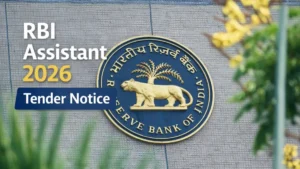Dear Readers,
Vocabulary is an important part of English that helps you deal with all sorts of questions in the objective as well as descriptive papers of various exams. You can learn new words daily from our Daily Word List. Learn the words and make your own sentences on the basis of the given word list. Here are a few words from an article published in Livemint.
A recent tweet that went viral beautifully captures the bitcoin dilemma. A son asks his father for one bitcoin on his birthday. The answer is epic: “What? $15,554? $14,345 is a lot of money! What do you need $16,782 for anyway?” The tweet highlights the fact that bitcoin prices have been moving a lot almost every second.
The wild swings in bitcoin prices have made the digital currency a big topic of discussion across the world. I recently overheard a bunch of college kids excitedly exchanging notes on bitcoin prices at the Goa airport. They were treating bitcoins like an investment asset rather than a new form of currency that could eventually be used more widely for a range of economic transactions.
Most of the debate right now is on whether bitcoins are a bubble inevitably floating towards the pinprick of reality. I have often heard people talk about bitcoin in terms of its market capitalization, as if it were a financial contract rather than a new form of money. Far less attention has been paid to bitcoin as a currency to replace the paper money printed by central banks, which is supposed to be its main attraction.
Any form of money has three main functions—as a medium of exchange, a unit of account and a store of value. Does bitcoin meet the first two requirements? A modern economy needs monetary stability because it is profoundly dependent on contracts. Let us take an example. Suppose your employer offers to pay you the salary over the next year in bitcoins. Will you accept the offer unless you are sure that the purchasing power of the currency will be more or less the same as today? It is very similar in the case of contracts with suppliers, lenders and consumers. Future payments are accepted only when the value of money is stable.
Few would risk signing contracts in a volatile currency. Some argue that participants in an economy can hedge the risk through derivatives, but that still entails higher transaction costs. One important reason money exists is to drive down transaction costs in an economy. The Chicago Board of Trade has already begun to offer bitcoin futures. It will be worth seeing how much the cost of hedging in bitcoins differs from the cost of hedging in traditional currencies.
Why are bitcoin prices so volatile? Monetary economists have for long pointed out that the demand for money has become unstable after the proliferation of alternatives since the advent of financial liberalization. The demand for bitcoins too is bound to be volatile. However, its supply is relatively rigid. The algorithm underlying the bitcoin process limits the supply of the cryptocurrency to 21 million units. That limit has not yet been reached, and, for now, the available supply of bitcoins can be increased by miners.
The attractiveness of mining increases with the rise in the price of bitcoins. In that sense, money supply is endogenous in the case of bitcoins. Yet, the relative rigidity of bitcoin supply, despite big swings in demand in practice, destroys the possibility of monetary stability. It could even be argued that the libertarian fear of the inflationary consequences of fiat money issued by governments has led to a denationalized currency that has a deflationary bias. The fact that supply is restricted means that there is little scope for discretionary monetary expansion to deal with economic downturns—an attribute that cryptocurrencies share with the old gold standard.
Defenders of digital money quite realistically argue that the problem of limited supply of one cryptocurrency such as bitcoin does not necessarily mean that the entire ecosystem has the same problem. The beauty of cryptocurrencies is that there will be competing currencies, so that the money supply in the economy as a whole will be far more responsive to circumstances than one currency alone. There is more than a modicum of truth in this. The issue that needs to be watched is whether the inevitable network effects will in practice ensure that only a few cryptocurrencies will be in common use.
The growing popular interest in bitcoins is important despite signs that prices are now in bubble territory. The stratospheric rise in bitcoin prices has made millions aware of the radical possibility of currencies issued by algorithms rather than central banks. There are still many fundamental economic question marks about the ability of cryptocurrencies to replace traditional money. This column has highlighted some of these concerns—rigid money supply, volatile purchasing power, the lack of monetary stability, higher transaction costs and the impossibility of discretionary monetary policy dealing with business cycles. There are several parallels to the old gold standard (and some differences as well).
The cryptocurrency ecosystem is still an emerging one. The recent swings in bitcoin prices should not take away from the fact that digital currencies—and, more broadly, the blockchain technology on which they are based—offer a profound challenge to existing monetary systems. The big question is whether nation states will ever give up their monetary powers, as well as the small matter of seigniorage. The issue is as much political as it is economic.
There are now growing signs that central banks are trying to figure out how to embrace the blockchain future. What will that mean for the money supply process as well as for monetary policy? That is a question this column will return to in the next installment.
1. Overhear [oh-ver-heer]
Verb: to hear (speech or a speaker) without the speaker’s intention or knowledge.
Synonyms: discovered, heard, recorded.
2. Pinprick [pin-prik]
Noun: any minute puncture made by a pin or the like; a negligible irritation or annoyance.
3. Hedge [hej]
Noun: a row of bushes or small trees planted close together, especially when forming a fence or boundary; hedgerow; any barrier or boundary.
Verb: to enclose with or separate by a hedge; to surround and confine as if with a hedge; restrict (often followed by in, about, etc.)
Synonyms: fence, shrubbery, barrier, bush, enclosure, guard, hedgerow, hurdle, protection, quickset, screen, thicket, windbreak.
Antonyms: opening.
4. Entail [verb en-teyl; noun en-teyl, en-teyl]
Verb: to cause or involve by necessity or as a consequence; to impose as a burden; to limit the passage of (a landed estate) to a specified line of heirs, so that it cannot be alienated, devised, or bequeathed.
Noun: the act of entailing.
Synonyms: bring about, call for, encompass, involve, lead to, necessitate, require, cause, demand, entangle, evoke, impose, occasion, tangle, give rise to.
Antonyms: exclude, untangle, untwist.
5. Proliferation [pruh-lif-uh-rey-shuh n]
Noun: the growth or production of cells by multiplication of parts; a rapid and often excessive spread or increase.
Synonyms: generation, procreation, propagation, reproduction.
6. Endogenous [en-doj-uh-nuh s]
Adjective: proceeding from within; derived internally.
Synonyms: internal, remote, domestic, gut, home, intimate, private, secret, autogenous, in-house, inland, inner, innermost, inward, visceral, viscerous, within.
Antonyms: business, open, public, revealed.
7. Fiat [fee-aht, -at; fahy-uh t, -at]
Noun: an authoritative decree, sanction, or order.
Synonyms: authorization, directive, ruling, mandate, diktat, ukase.
Antonyms: denial, disapproval, opposition, veto.
8. Modicum [mod-i-kuh m, moh-di-]
Noun: a moderate or small amount.
Synonyms: iota, ounce, shred, atom, crumb, dash, drop, fraction, fragment, grain, inch, jot, little, minim, mite, molecule, particle, pinch, scrap, smidge.
Antonyms: lot, entirety, total, whole.
9. Discretionary [dih-skresh-uh-ner-ee]
Adjective: subject or left to one’s own discretion; for any use or purpose one chooses; not earmarked for a particular purpose.
Synonyms: unrestricted, at the call, elective, facultative, judge and jury, leftover, nonmandatory, nonobligatory, open, optional.
Antonyms: nondiscretionary.
10. Seigniorage [seen-yer-ij]
Noun: something claimed by a sovereign or superior as a prerogative; a charge on bullion brought to the mint to be coined; the difference between the cost of the bullion plus minting expenses and the value as money of the pieces coined, constituting a source of government revenue.





 RBI Assistant 2026 Tender Out, Notificat...
RBI Assistant 2026 Tender Out, Notificat...
 Union Bank of India Promotion Exam Notif...
Union Bank of India Promotion Exam Notif...
 Daily Current Affairs and GK Updates (04...
Daily Current Affairs and GK Updates (04...









